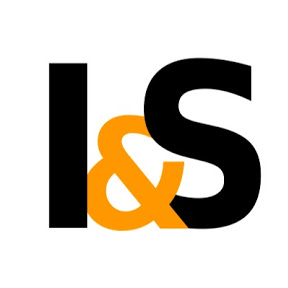Graduate Studies (Graduate Program in Systems Engineering and Computer Science and Graduate Program in History of Science, Techniques, and Epistemology)
COS812 - Introduction to Science and Technology Studies
This course aims to present the development and main concerns of Science and Technology Studies, as well as to debate their implications to the comprehension, meaning, teaching and practice of the scientific and technological development. Western Science and technology have been historically presented and taught as a 'pure', 'universal' and 'neutral' knowledge, and therefore, separable from the social. STS propose that this 'purity' is senseless, since facts and artifacts only stabilize for short periods of time through the effect of a complex network of conditionalities and interactions, gathering heterogeneous materials and socializing human and non-human elements. Facts and artifacts are at the same time the result and the support of sociotechnical networks. The main argument is that this standpoint allows the erasing of many of the conventional modern borders established between natural and social sciences, showing that it is impossible to separate the 'natural' or 'technical' from the 'social' or 'cultural'.
- Academic Period: First Quarter (Mar. to Jun./COPPE calendar)
COS817 - Science and Technology Studies: Brazilian and Latin American approaches | HCT820 - Facts and Artifacts as sociotechnical constructions B
This course aims to understand Science and Technology Studies as situated knowledges, striving to localize and discuss their challenges on approaching different Brazilian and Latin American particular realities in three movements: 1) The presentation of a historic overview of Brazilian scholars who are dedicated to the discussion of science and technology in Brazil, covering the period that starts with Fernando de Azevedo's book, Sciences in Brazil (1955) and finishes with contemporary productions, privileging those affiliated with STS; 2) The exploration of the works of Latin American scholars published in the first edition of Cuadernos Quipu - Revista Latinoamericana de História de las Ciencias y la Tecnologia (1986); 3) The discussion of the connections, in STS terms, between Brazilian and Latin American scholars and North American and European scholars, looking for for and evaluating affinities and differences in order to identify new possibilities of techno-scientific studies and practices that are not merely an 'enforcement' of hegemonic Euro-North American knowledge to Latin American and Brazilian realities.
- Academic Period: Second Quarter (Jun.-Sep./COPPE calendar)
COS814 - History of Computing
The course follows a sociotechnical history of computing, observing its Brazilian and Latin American branch in three phases: 1) A sociotechnical history of the beginnings of computing, exploring issues related to the invention of computers and its historiography (in particular the North American standpoint), investigating especially the bonds between the invention of computers and the Cold War; 2) A history of North American and British cybernetics, exploring the intellectual atmosphere of the founding debates in computing, especially the human-machine analogy, originally proposed by Norbert Wiener; 3) i) A history of computing in Brazil, from the arrival of the first large-sized computers, passing trought the experience of the market reserve for minicomputers until the arrival of Internet in the country; ii) Some elements for a history of computing in Latin America.
- Academic Period: Third Quarter (Sep.-Dec./COPPE calendar)
Undergraduate Studies (Polytechnic School/Computer and Information Engineering)
COS471 - Computers and Society
É necessário, para não dizer urgente, ter em conta o novo ordenamento social que se está produzindo desde o surgimento e a adoção das novas tecnologias de informação e comunicação. Investigá-lo é crucial, seja para descortinar novas perspectivas de sucesso comercial e empresarial, seja para construir uma melhor qualidade de vida e uma sociedade mais justa. Estas novas tecnologias são reputadas como fonte de mudanças radicais, e, neste caso, constituem um cenário no qual transformam significativamente várias dimensões da vida moderna, entre outras a natureza e a experiência das relações e comunicações interpessoais, as relações e condições de trabalho, o modo de funcionamento do mundo dos negócios, da indústria e da agroindústria, os processos educacionais, os modos de construção do conhecimento ou ainda a formulação de políticas regulatórias . Em síntese, as novas tecnologias modificam a forma e a substância do controle, da participação e da coesão social. Porém, ao fazê-lo, são também modificadas pela experiência social, de sorte que computador e sociedade, ou de outra forma, o técnico e o social, constituem um movimento de co-modificação, somente percebido por uma aproximação concomitantemente social e técnica, por um olhar sociotécnico. Assim, repensar o social é, ao mesmo tempo, promover uma reflexão sobre o próprio modo de produção e organização do conhecimento científico e tecnológico, e sobre as mútuas implicações entre ciência, tecnologia e sociedade. Projetos de alunos de períodos passados podem ser acessados aqui.
- Academic Period: Second Semester (Aug.-Dec./Polytechnic School calendar)

